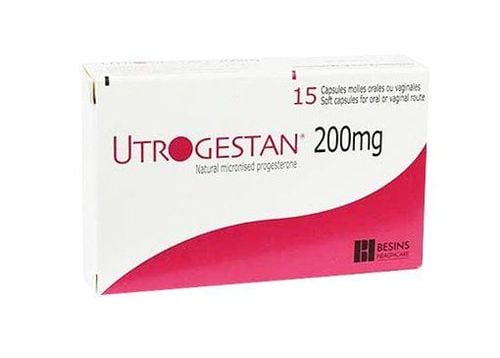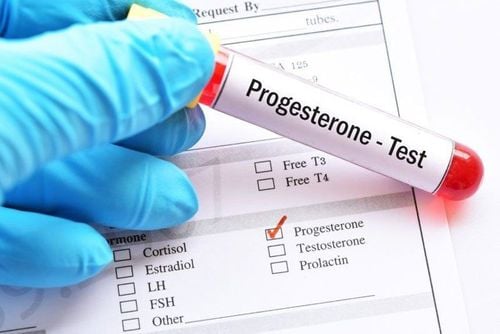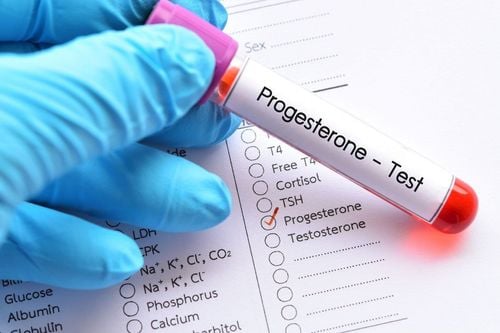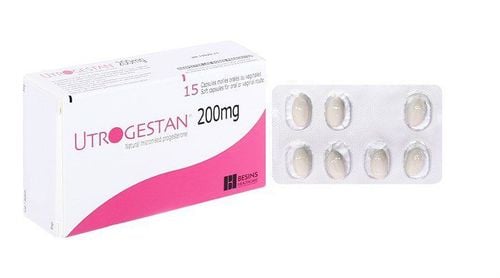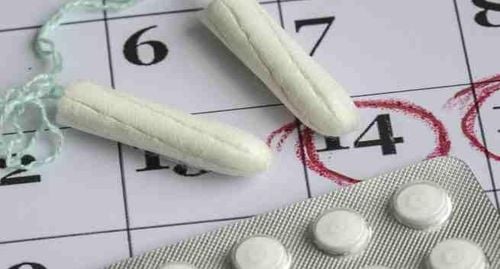This is an automatically translated article.
Ovulation of the ovary is one of the factors that determine fertility in women. To assess the ability of the ovaries to ovulate, doctors may order a number of tests, including a test of the hormone Progesterone.1. Learn about the hormone Progesterone
Progesterone hormone is a female sex hormone, produced by the ovaries after the menstrual cycle and plays a role in regulating a woman's body during the menstrual cycle and pregnancy period.One of the main tasks of Progesterone is to maintain a woman's ability to become pregnant, helping the uterus to always be in a state of readiness to receive a fetus. After ovulation, the hormone progesterone causes the endometrium to thicken to make it ready for fertilization of an egg. If there is no fertilization during this time, this endometrial layer will automatically peel off under the influence of Progesterone and lead to the menstrual cycle.
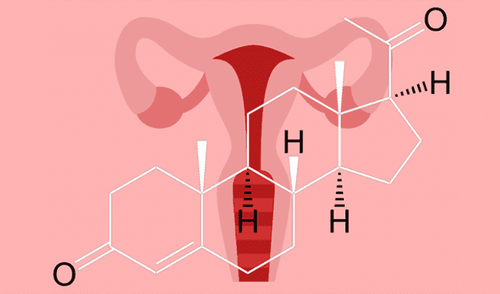
Hormone Progesterone là một loại hormone sinh dục nữ, được buồng trứng sản sinh ra sau chu kỳ kinh nguyệt
2. Progesterone content by period
Progesterone levels can change with each change in a woman's body:In the follicular phase, before ovulation, progesterone levels are usually low (from 0.2 to 1.5 ng/ml). When LH hormone increases and peaks, it will lead to ovulation: granulosa cells in ovarian follicles are broken, progesterone is produced under the effect of LH hormone, so in the ovulatory phase, progesterone tends to increase rapidly. and reaches a maximum level of 10-20 ng/ml about 5-7 days after ovulation. If the egg is not fertilized, progesterone levels will drop on their own during the last 4 days of the cycle due to corpus luteum degeneration. If the egg is fertilized, the corpus luteum will remain and keep progesterone levels high. In addition, the placenta also stimulates increased secretion of progesterone. Therefore, pregnant women often have high levels of progesterone in their blood (even up to 280 ng/ml during the last 3 months of pregnancy).
3. Progesterone test evaluates the ovulation of the ovaries
Progesterone test is a test used to measure the level of the hormone Progesterone in the blood, has many uses in medicine, especially in women's reproductive problems. In particular, the obvious benefits of this test include:Determining the cause of infertility - infertility for appropriate monitoring and treatment, bringing a high success rate. Determine whether the ovary is ovulating or the ovary is not ovulating. Assess a woman's risk of miscarriage. Monitor ovarian and placental function throughout pregnancy. May aid in the diagnosis of adrenal gland problems and the early detection of certain types of cancer. For ovarian ovulation, the Progesterone test will help assess whether the ovaries are ovulating and to what extent, thereby assessing a woman's fertility.
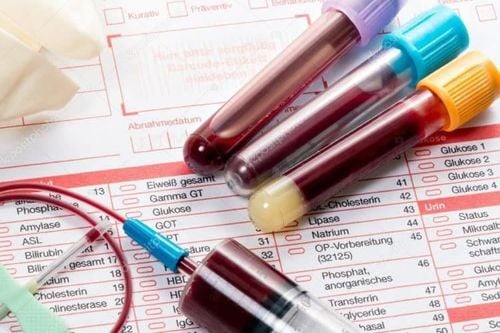
Xét nghiệm Progesterone là một xét nghiệm dùng để đo lường nồng độ hormone Progesterone có trong máu
4. Indicated subjects of the Progesterone test to assess the ovulation of the ovaries
Evaluation of ovarian ovulation usually involves several tests, including the LH test and the Progesterone test primarily. The following subjects will be assigned to evaluate the status of ovulatory ovaries:Women who have difficulty getting pregnant: The results from the Progesterone test will assess the patient's ovulatory (or ovulatory) status. If Progesterone levels are low every month, this means that the patient's ability to ovulate is limited - one of the causes of infertility in women. Women menstrual disorders.
5. What is the normal result of the Progesterone test?
Progesterone levels in the blood vary according to age. In addition, as mentioned above, progesterone levels in pregnant women will be much higher than in non-pregnant women.Usually, doctors will base on the following table of normal Progesterone values to evaluate:
| Giai đoạn | Giá trị Progesterone bình thường |
| Trước giai đoạn dậy thì | 0.1 – 0.4 ng/mL |
| Giai đoạn tạo nang | 0.057 – 0.892 ng/mL |
| Giai đoạn phóng noãn (rụng trứng) | 0.119 – 11.963 ng/mL |
| Giai đoạn tạo thể vàng | 1.821 – 28.833 ng/mL |
| 3 tháng đầu thai kỳ | 15 – 60 ng/mL |
| 3 tháng giữa thai kỳ | 25.6 – 89.4 ng/mL |
| 3 tháng cuối thai kỳ | 48.4 – 42.5 ng/mL |
| Giai đoạn mãn kinh | Dưới 0.13 ng/mL |
6. What preparation is required before the Progesterone test?
Before having a Progesterone test to assess ovulation, patients may be asked to stop taking certain medications (including oral contraceptives) that contain estrogen or progesterone, or both, for a maximum period of time. 4 weeks before the test.If you have ever had a test that uses radioactive tracer such as thyroid scan, bone scan, etc., you need to inform your doctor in advance because they have the potential to affect the test results.
Note the first day of your most recent menstrual cycle and notify your doctor.

Bạn cần thông báo cho bác sĩ ngày đầu tiên của kỳ kinh nguyệt gần nhất
7. How is the Progesterone test done?
The Progesterone Index Test is a blood test that focuses on progesterone levels. Therefore, the patient will be instructed and proceed to draw blood through the following steps:Wrap a piece of elastic band around the arm where the blood will be drawn to stop the flow. Clean the injection site with alcohol and insert the needle into the vein. Attach a tube to the needle to draw a full tube of blood. Place a cotton ball soaked in alcohol over the area where the needle was removed, then cover it with a bandage. The process of taking blood for testing is relatively quick and gentle, the patient will only feel stinging when taking blood, and there are no complications/risks.
Progesterone test is one of the necessary tests to evaluate the ovulation of the ovaries, thereby finding out the cause of menstrual disorders, infertility - infertility in women... and can detect it early. some other diseases.
Currently, Vinmec IVF Fertility Center is a reliable address providing advanced and leading fertility support techniques, performed by a team of highly qualified doctors - experts and Experience. Here, every couple can fully realize their dream of becoming a parent.
If you want to book an appointment and consult with us, you can contact Vinmec Hospitals and Clinics nationwide HERE.
MORE
What is Progesterone? The role of Progestogen in the prevention of preterm birth Threats of preterm birth and preterm birth





